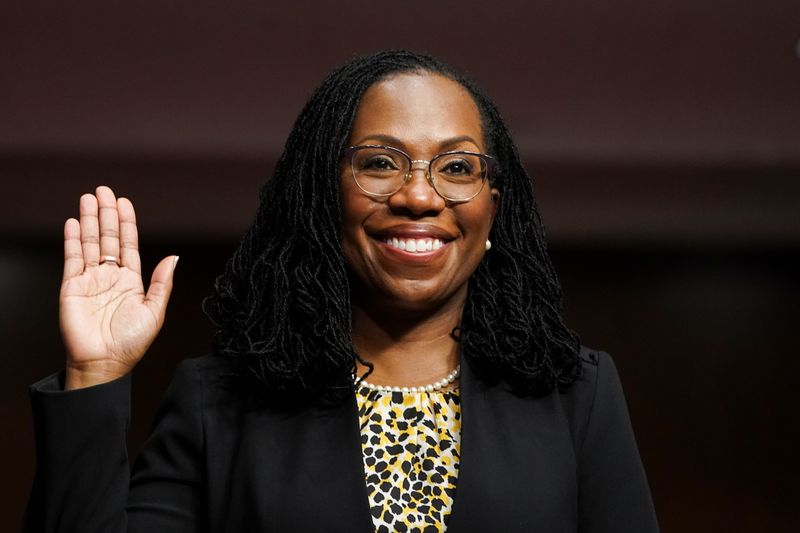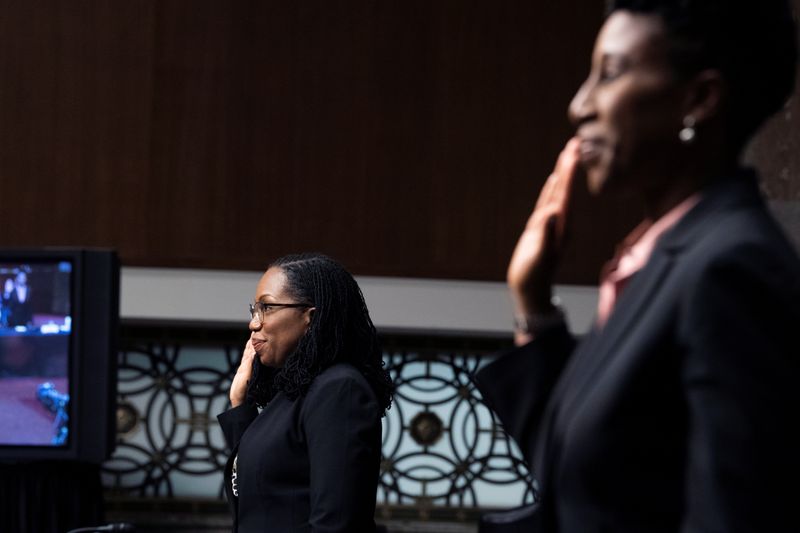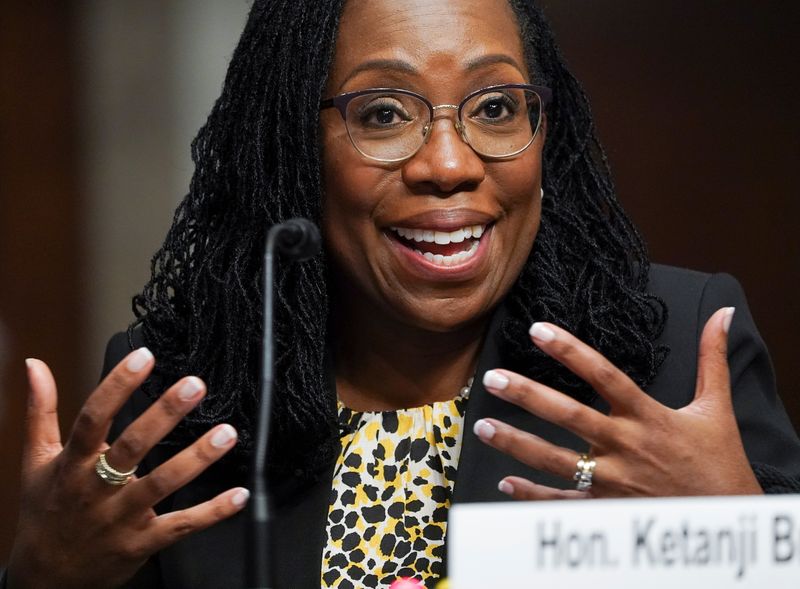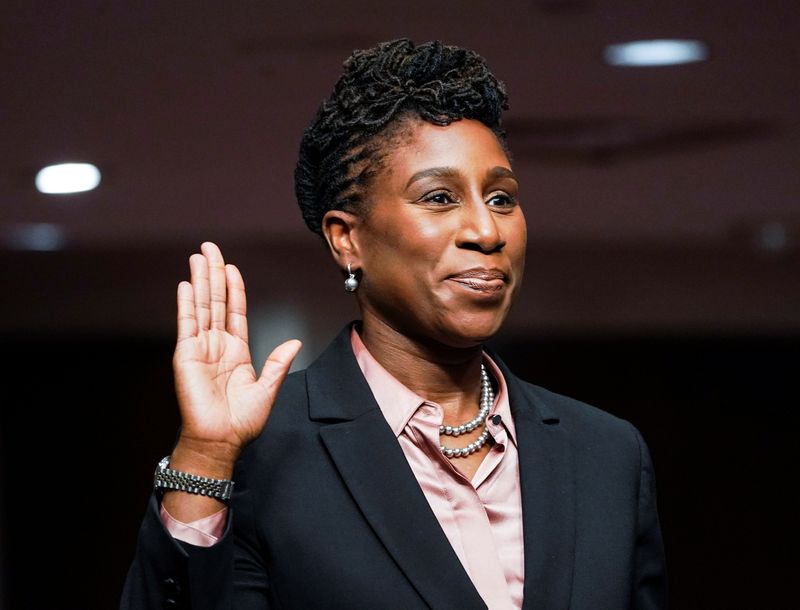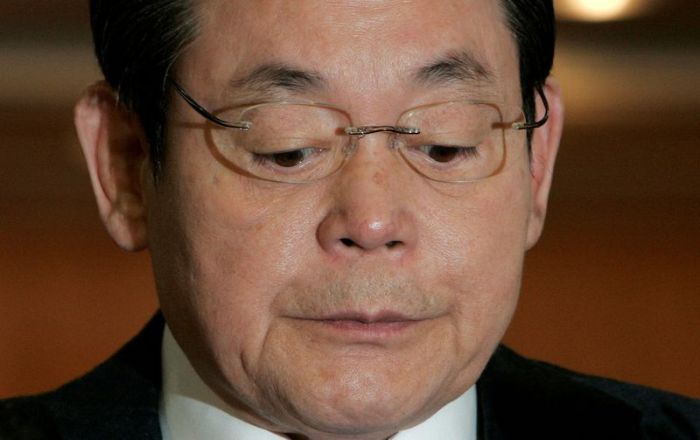WASHINGTON (Reuters) – A federal judge seen as a possible future U.S. Supreme Court nominee said on Wednesday her identity as a Black woman does not affect how she approaches legal issues relating to race as she testified at a Senate confirmation hearing for her selection by President Joe Biden to serve on an influential appeals court.
U.S. District Judge Ketanji Brown Jackson appeared before the Senate Judiciary Committee after being nominated to the U.S. Court of Appeals for the District of Columbia Circuit to replace Attorney General Merrick Garland on the bench. That appellate court in the past has served as a springboard to the Supreme Court for some justices.
Biden, a Democrat, pledged during his election campaign to nominate a Black woman to the Supreme Court if he gets a chance to fill a vacancy, which would be a historic first. Jackson is among the most prominent Black women in the federal judiciary and, at age 50, is also relatively young.
Senator John Cornyn was one of several committee Republicans who questioned Jackson, a Washington-based judge, on whether race plays a role in her approach in deciding cases.
“I’m methodically and intentionally setting aside personal views and any other inappropriate considerations. And I would think that race would be the kind of thing that would be inappropriate to inject in my evaluation of a case,” Jackson said.
Jackson added that her background, both professional and personal, would nevertheless “bring value” to the appeals court if she is confirmed.
“I’ve experienced life in perhaps a different way than some of my colleagues because of who I am,” Jackson said.
Questioned by Republican Senator Mike Lee, Jackson declined to weigh in on whether racial disparities in the criminal justice system are as a result of unconscious racial bias.
“I’m not a social scientist,” Jackson said.
She also said her personal views would not affect how she would approach rulings on contentious issues including gun rights.
Jackson was appointed to her current post by Democratic President Barack Obama in 2013.
With conservatives holding a 6-3 majority on the Supreme Court, liberal activists has been urging the court’s eldest member, 82-year-old liberal Justice Stephen Breyer, to retire this year while Democrats control the Senate. A Harvard Law School graduate, Jackson early in her career served as one of Breyer’s law clerks at the Supreme Court.
Jackson’s judicial record includes some high-profile rulings. Jackson, for example, in 2019 decided to let the Democratic-led House of Representatives Judiciary Committee subpoena former Republican President Donald Trump’s then-White House Counsel Donald McGahn. Her ruling was appealed and the case is ongoing.
Obama considered Jackson to fill a 2016 vacancy on the Supreme Court before picking Garland as his nominee. But Senate Republicans blocked Garland’s confirmation and kept the vacancy open for more than a year, enabling Trump rather than Obama to make the appointment.
Nominees can win confirmation to lifetime judicial appointments with a simple majority vote in the 100-seat Senate, which is currently split 50-50 between the parties and is controlled by Democrats because Vice President Kamala Harris can cast a tie-breaking vote.
Biden nominated Jackson to replace Garland on the D.C. Circuit. Jackson and another Black female judge, California Supreme Court Justice Leondra Kruger, are considered frontrunners to be nominated by Biden should Breyer step aside.
Another Biden selection appearing at Wednesday’s hearing was Candace Jackson-Akiwumi, a Black woman lawyer nominated to the Chicago-based 7th U.S. Circuit Court of Appeals. Also testifying was Zahid Quraishi, who would be the first Muslim to serve as a U.S. district court judge.
(Reporting by Lawrence Hurley; Editing by Will Dunham)

